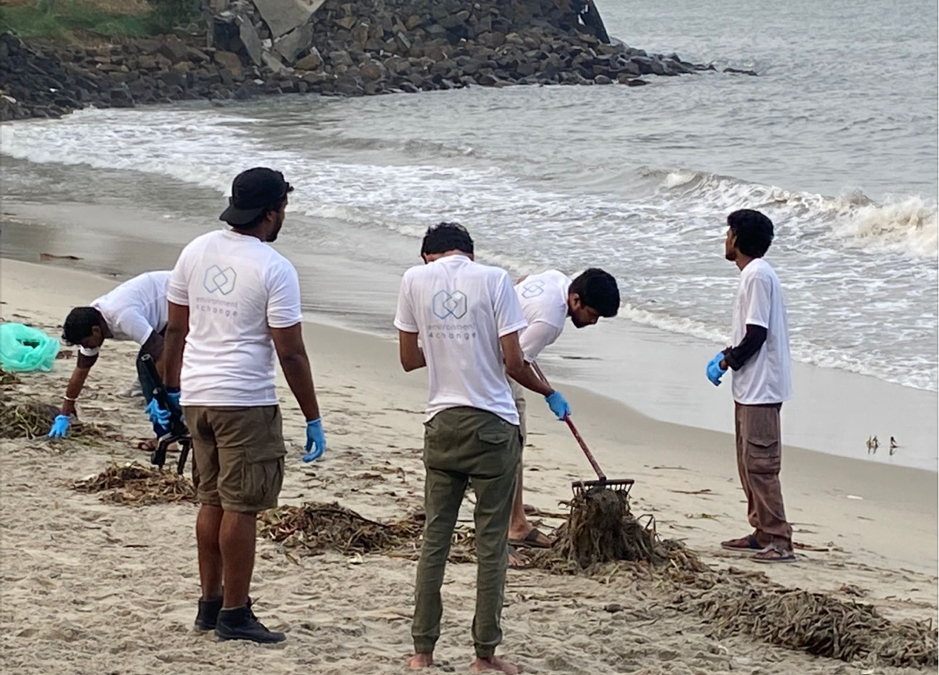
Update on E4C Platform development
Hi E4C Community – Peter and I have decided to pause the E4C project as our efforts to raise much needed funding hasn’t proved successful. While disappointing, we are eternally optimistic and positive this project will start at some stage in the near future, as the need remains urgent and unmet and we continue to believe an organised and rewarded global clean-up is best done by local communities, around the world, thinking and acting locally.
We also see an incredible amount of development being done in the generative AI space, and wonder whether we can use this tool to help us develop the tools that can further assist in the planets clean-up and thus the adoption of this project. Collaborative AI, a collaboration between AI and a Decentralized Autonomous Organization (‘DAO’) infrastructure requires further maturity but after initial development cost may allow us to focus most donations directly to communities wanting to clean up their communities.
A blockchain, Platform as a Service (PaaS) and Web3 approach sees local project managers acting like entrepreneurs for the benefit of their local communities. The best example of local entrepreneurship may look something like the commitment and success of environmental leader Seven Clean Sees – and the work of Tom Peacock-Nasil and Team in cleaning Asia’s oceans of destructive and planet polluting plastics and rubbish. Imagine many thousands of clean-up projects of this ilk running concurrently for the benefit of our shared planet. The new business models based on a Blockchain and Web3 approach sees all environmental warriors supported by funding, local services, tools and amenities. No-one will support a local ocean and beach clean-up as passionately as a local.
The blockchain, PaaS and Web3 approach has advantages over traditional charity organisations in employment and registration. Historic business models for running a charity focused on promoting clean ups would be to hire staff in every geographic region requiring the Charity to register in all countries of operation and become an employer. Not a terrible business model, considering the goal, but one that would be slow to implement, bureaucratic and clearly doesn’t scale quickly. The environment4change model takes the very best intent and converges it with bespoke digital tools allowing for passionate locals to take charge and clean-up their own back yards. The new model sees no-one own anything, but rather having all the value flow to the local communities responsible for the clean-up and their local participants. With the addition of the E4C utility token, we see a deeper and more informative engagement around local communities allowing for the creation of new business models around new products, community and creative strategies.
The environment4change Team also believed that the E4C Foundation should become a Decentralized Autonomous Organization (‘DAO’) to assist the community run global clean-up projects in several ways.
1. Fundraising: A DAO can act as a fundraising platform for the non-profit foundation. By using cryptocurrency or blockchain-based assets, the DAO can accept donations from individuals or entities worldwide, without the need for a centralized intermediary.
2. Governance: A DAO can act as a decentralized governance structure for the non-profit foundation. The DAO's members can collectively make decisions on which projects to fund, which areas to prioritize, and how to allocate resources.
3. Transparency: A DAO can increase transparency in the non-profit foundation's operations by using blockchain technology. This technology can create an immutable record of all transactions and actions taken by the DAO, ensuring that all members have access to the same information.
4. Coordination: A DAO can help coordinate global clean-up projects by enabling members to collaborate and communicate with each other in a decentralized manner. By using a DAO, members from different regions and countries can coordinate their efforts, share resources, and work together towards a common goal.
5. Incentivisation: A DAO can incentivize members to participate in global clean-up projects by offering rewards or tokens for completing specific tasks or achieving certain milestones. This can help motivate members and create a sense of ownership and commitment to the project.
The environment4change Team are big believers in what Web3 has to offer in selfless environmentalism. environment4change is about allowing members within communities to build their own social capital. Social capital in terms of being associated with an engaged community that cares for their own local environments. We think of it as an entire value layer, above shareholder equity. We all know the value of community is not generally valued within businesses. The E4C token was to become the mechanism that rewarded everybody in the ecosystem to create a vibrant community, and the more vibrant it is, the more valuable that community will become.
Everything that has a community can now create a huge value layer, a layer not abstracted by Facebook and Google, which is a different value mechanism because of its different economic characteristics. This requires a revolutionary change to how business models are construed, considered and constructed.
A huge thank you to all involved and the incredible support many following us have given. We particularly enjoyed seeing the results of the clean-ups that E4C helped organise.
